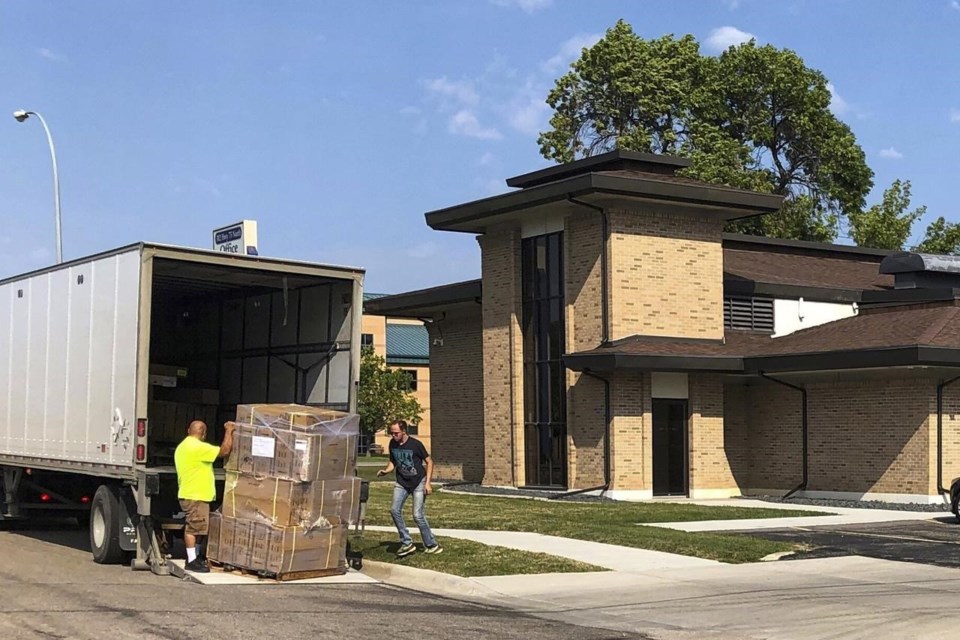FARGO, N.D. (AP) — The North Dakota Supreme Court ordered a lower court judge to reconsider his decision to prevent the state's abortion ban from taking effect pending the outcome of a clinic's legal challenge.
The state Supreme Court late Tuesday ordered Judge Bruce Romanick to weigh the clinic’s chances of succeeding in reconsidering whether his decision to temporarily halt enforcement of the ban was correct.
The Red River Women’s Clinic, the state’s only abortion clinic, argues that the state’s constitution grants the right to abortion.
Romanick last month denied a request to lift his stay of a law banning abortion while the clinic's challenge is pending. The judge wrote that he was not ruling on the probability of the clinic winning the lawsuit, rather that more time was needed to make a proper judgment. It was the second time the judge blocked the so-called trigger law, which had been set to take effect at the end of August.
North Dakota Attorney General Drew Wrigley certified a July 28 closing date a few days after the U.S. Supreme Court overturned Roe v. Wade. But Romanick rejected that date based on a technical issue involving the timing of the ban, after which Wrigley argued that the judge hadn’t sufficiently considered whether the clinic's lawsuit would succeed.
The high court said in its ruling Tuesday that Romanick should “determine the substantial probability of succeeding on the merits and then to determine whether the injunction remains appropriate based on all the factors.”
Romanick is required to respond by Oct. 17.
Jonathan Turley, a professor at George Washington University Law School, said Wednesday's order from the high court is no surprise.
“This is entirely, if not embarrassingly, predictable,” Turley said. “Judge Romanick’s opinion was notably disconnected from the governing standard on preliminary injunctions. It was strikingly improvisational and the Supreme Court is ordering the court to return to the more scripted standard for such applications.”
Bismarck attorney Jesse Walstad, who has appeared before Romanick on several occasions, said Romanick's decision to delay enforcement of the ban is meant to ensure that all sides have a “full and fair opportunity” to make their arguments.
“So when you’ve got a case such as this with constitutional gravity, you don’t want to rush to a decision,” Walstad said. “You want to make the right decision the first time and that takes a little bit of time because you don’t want in this sort of case to make the timeline so important in the absence of the stay.”
Meetra Mehdizadeh, an attorney for the Center for Reproductive Rights, which is helping the clinic with the suit, did not comment directly on the state Supreme Court’s ruling but said Romanick has “already recognized the devastating harms” that would come with the trigger ban.
“North Dakotans undoubtedly deserve the ability to make personal decisions about their own bodies and lives, and providers should not be afraid to do their jobs in caring for their patients,” Mehdizadeh said in a statement.
The clinic is pursuing its legal challenge even though it closed its Fargo location in August and opened a clinic in neighboring Moorhead, Minnesota, where abortion remains legal.
When Romanick blocked the law from taking effect, he acknowledged that the clinic had moved but noted that doctors and hospitals would still be affected by the statute.
The law would make abortion illegal except in cases of rape or incest or when the life of the mother is in danger — any of which would have to be proven in court. Otherwise, a doctor who performs an abortion would face a felony charge.
Dave Kolpack, The Associated Press




